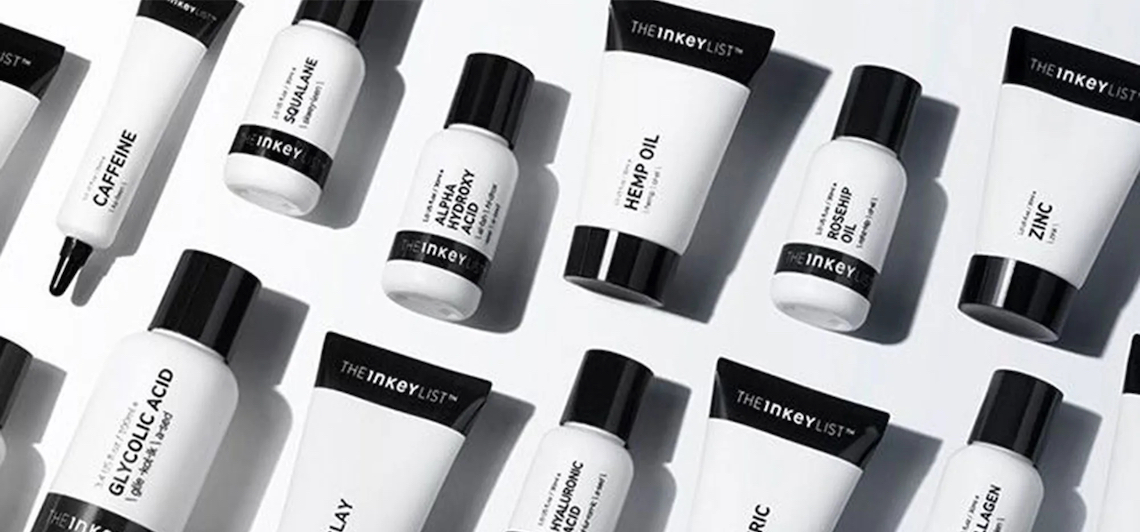For Trevor Nelson, founder and managing partner of consumer private equity firm Aria Growth Partners, investing in the right consumer brand starts with the founders.
“Part of our decision-making [process] is [understanding] how deep and strong the team is under the leadership of founders and senior executives,” said Nelson. “We try to speak to as many people on the team before we make an investment.”
Aria Growth Partners recently found such leadership strength in beauty brands The Inkey List and Hero Cosmetics. The Inkey List’s undisclosed investment was announced in February, while Hero Cosmetics received an investment in 2020. According to WWD, The Inkey List reportedly expects to reach $100 million in sales in 2022, while Hero Cosmetics reached the same sales figure in 2021. The 2-year-old consumer growth equity firm typically makes investments between $5 million and $30 million according to its website.
Glossy spoke with Nelson to ask about the firm’s recent beauty investments, the moves early-stage founders can make to attract investor attention and the challenges brands are currently facing.
What led to your investments in The Inkey List and Hero Cosmetics?
“[Inkey List founders] Mark [Curry] and Colette Laxton are tireless people, and they combine that with one of the most important things, which is a deep desire to bring forth a brand that truly helps consumers. They’ve put the consumer at the heart of the brand, namely breaking embedded compromises consumers [have long dealt with] in the skin-care market.
With Hero, it once again starts with fantastic founders. Ju [Rhyu, CEO of Hero Cosmetics], Dwight [Lee] and Andy [Lee] looked at the mass acne-care market and said, ‘Why is it that consumers are still being underserved today?’ Acne care is an emotional category and a giant category, yet the solutions for that haven’t been modernized over the last 20 years.”
How much importance do you put on a team when considering an investment?
“We put the most emphasis on our founder partners and senior executive teams. That’s a very important aspect. We are always a minority partner and want to be an insightful partner, but still one that approaches partnership from a service perspective. We do rely on founders and senior executives to have great judgment and to be aligned with us and to go out and continue to build teams in their image.”
What beauty categories interest you right now?
“We have [interest] in skin care, both mass and prestige. We’re also interested in hair, both on the prestige and mass side. We have no [hair] investments today, other than The Inkey List having some hair products. In addition to that, we are paying attention to clean makeup. One of the things we’re watching for is what the future or next iteration of clean color is. Could there be something that is not just another brand, but actually a game-changing innovation?”
What challenges are you seeing brands experience?
“There continue to be challenges in the global supply chain. What we’ve seen is that brands have become more cashflow intensive, as they have to hold more inventory and essentially tie up more cash in working capital. For us, it probably means that some brands that may have wanted $5million to $10 million investments a few years ago now need to raise $10 million to $15 million instead. Most brands that we invest in, but not all, use contract manufacturers. What it means today is that [brands need to be] extremely thorough about understanding the dynamics of working with contract manufacturers and the route to market for the products. We have gone so far as to bolster our resources that we share with the brands we invest in.
A trend that is not necessarily a challenge, but something we find pretty fascinating, is the continued penetration of Amazon into prestige beauty. We’ve seen data recently across various categories of prestige beauty, where Amazon is starting to become a much bigger player and that some of the most successful brands on Amazon are prestige brands. Are founders going to be leaders in that direction or followers? How does it evolve and who leads it?”
Any advice for smaller early-stage brands looking to attract an investor’s interest?
“It comes down to creating small format case studies of how the brand is already showing success in the market, where you can extrapolate a larger success from those very small successes. Hero Cosmetics has taken no outside capital other than Aria Growth Partners, and they’ve produced an incredibly high growth and high cash flow business. But they started with just one or two products on Amazon to see if it was going to work. They built a microcosm of success and then built on that. That led them to more products on Amazon and that led to interest from a retailer, which became [selling] one product at Target and then they launched six more products.”




